Did you know that France offers a post-study work visa to international students who have completed their master’s degree, allowing them to stay and work in France for up to two years?
This visa is particularly attractive to Indian students, with approximately 10,000 Indian students currently studying in France. The number has increased by about 25% each year since the pandemic restrictions were eased. France aims to welcome 30,000 Indian students by 2030, a goal reiterated by President Macron during his visit to India in January 2024.

Excel in IELTS with India’s Top Online Coaching
Leap has helped more than 1 Lakh students achieve 7+ IELTS band.
If you’re considering applying for a post-study work visa in France, know this: it’s a straightforward process if you follow the necessary steps. The visa allows you to stay in France for an additional year, with the possibility of renewal for another year, giving you ample time to find employment or start a business.
Are you eager to know more about the post-study work visa in France for Indian students? Follow this guide to understand France’s work visa requirements, the eligibility criteria, and the application process to secure your post-study work visa in France.
Key Highlights
Explore the different types of post-study work visas in France, their requirements, eligibility standards, and application process, and assess the benefits and average salaries.
Here’s an overview of everything you will learn in greater detail in this comprehensive blog post.
| Aspect | Descriptions |
| Number of Indian Students in France | Approx 10,000. Increasing by 25% yearly |
| Duration of the Post-Study Work Visa in France | Up to 2 years, renewable |
| Employment Growth | 0.35% increase 28.4 million people employed |
| Average Salary for Students Holding Master’s Degrees in France | INR 38L (EUR 43,000) |
| Work Visa Permits | APS (Autorisation Provisoire de Séjour): Up to 12 months Talent Passport: Multi-year EU Blue Card: 1-3 years |
Benefits of Post-Study Work Visa in France
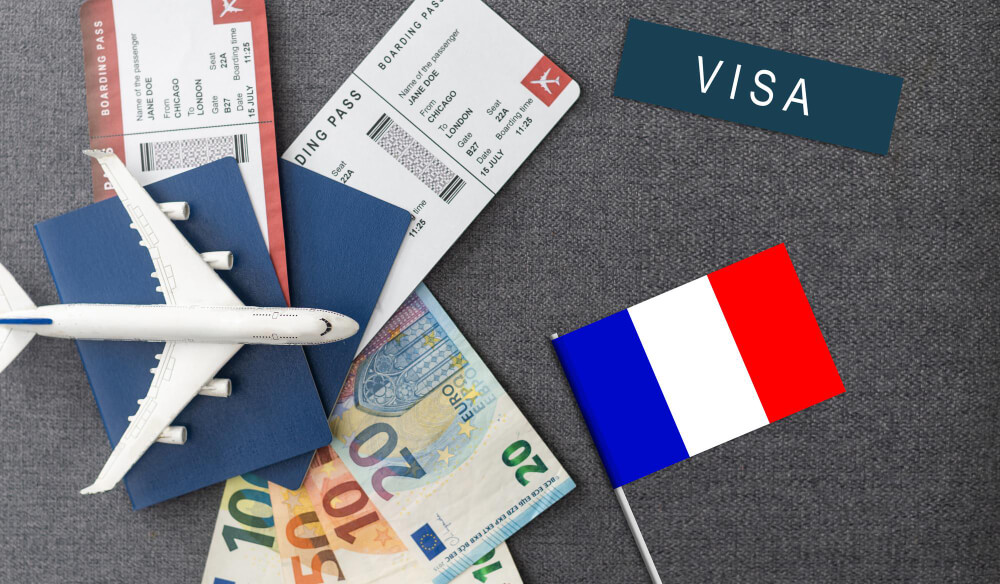
According to recent statistics, over 40,000 international students secure post-study work visas annually, allowing them to gain valuable work experience in one of Europe’s largest economies.
Approximately 70% of graduates find employment within six months. You can also open the doors for opportunities to build professional networks.
Adapting to a new culture and environment is challenging, but the experience and education gained are invaluable. If you secure a post-study visa, you’ll enjoy numerous benefits:
- No Schengen Travel Restrictions: You can travel freely within Schengen countries for up to five years without needing a separate Schengen visa.
- Free VISALE Assistance: For any visa or immigration-related issues, you can access the local visa office (VISALE) at no cost.
- Housing Rental Subsidies: Qualify for rental subsidies to help with housing costs.
- Work Permit Renewal: You can easily renew your work permit, ensuring a worry-free stay in France after completing your master’s degree.
- Tax Benefits: Enjoy tax benefits, such as a reduced tax rate for foreign income and a tax-free allowance for certain expenses.
This table specifies the tax rates applicable in India based on income levels.
| Income Level (per year) | Tax Rate in India (%) | Equivalent in Euros (€) |
| Up to INR 13.3L (€15,228) | 0% | 0% |
| Between INR 13.3L (€15K) | 12% | 12% |
| Exceeding INR 38.6L (€44,172) | 20% | 20% |
- Healthcare Coverage: Benefit from comprehensive healthcare coverage, including access to public healthcare services and private health insurance options. State healthcare through PUMa is offered to you after three months of residency.
Eligibility Criteria to Obtain a Post-Study Work Visa in France
The French government has introduced various post-study work visas for Indian students in France. The aim is to shape your career and to encourage you to stay and contribute to the French economy.
Besides, getting a post-study work visa is simpler than you think. You will need to have completed a recognised degree from a French institution, which around 60,000 international students achieve each year. Interestingly, nearly 75% of applicants successfully secure their visas on the first attempt.
However, the French work visa requirements vary depending on the type of permit you get and your qualifications.
Here are the general France work visa requirements that you must know.
- You must have stayed in France with a student residence permit (such as a VLS-TS or a residence permit mentioning “student”).
- You have obtained one of the following French higher education diplomas:
- Master’s degree or equivalent (e.g., engineering degree, degree from an institute of political studies (IEP), etc.)
- Licence Professionelle (vocational degree)
- Specialised Master’s degree
- Master of Sciences (MSc) accredited by the Conférence des Grandes Ecoles
- The post-study work visa in France is available to researchers who have stayed in France with a researcher talent passport residence permit and have completed the research mission.
- It is mandatory to have health insurance coverage for the duration of your stay in France.
- You must have sufficient financial means to support yourself during your stay in France. This includes proof of funds for accommodation, living expenses, and health insurance coverage.

Excel in IELTS with India’s Top Online Coaching
Leap has helped more than 1 Lakh students achieve 7+ IELTS band.
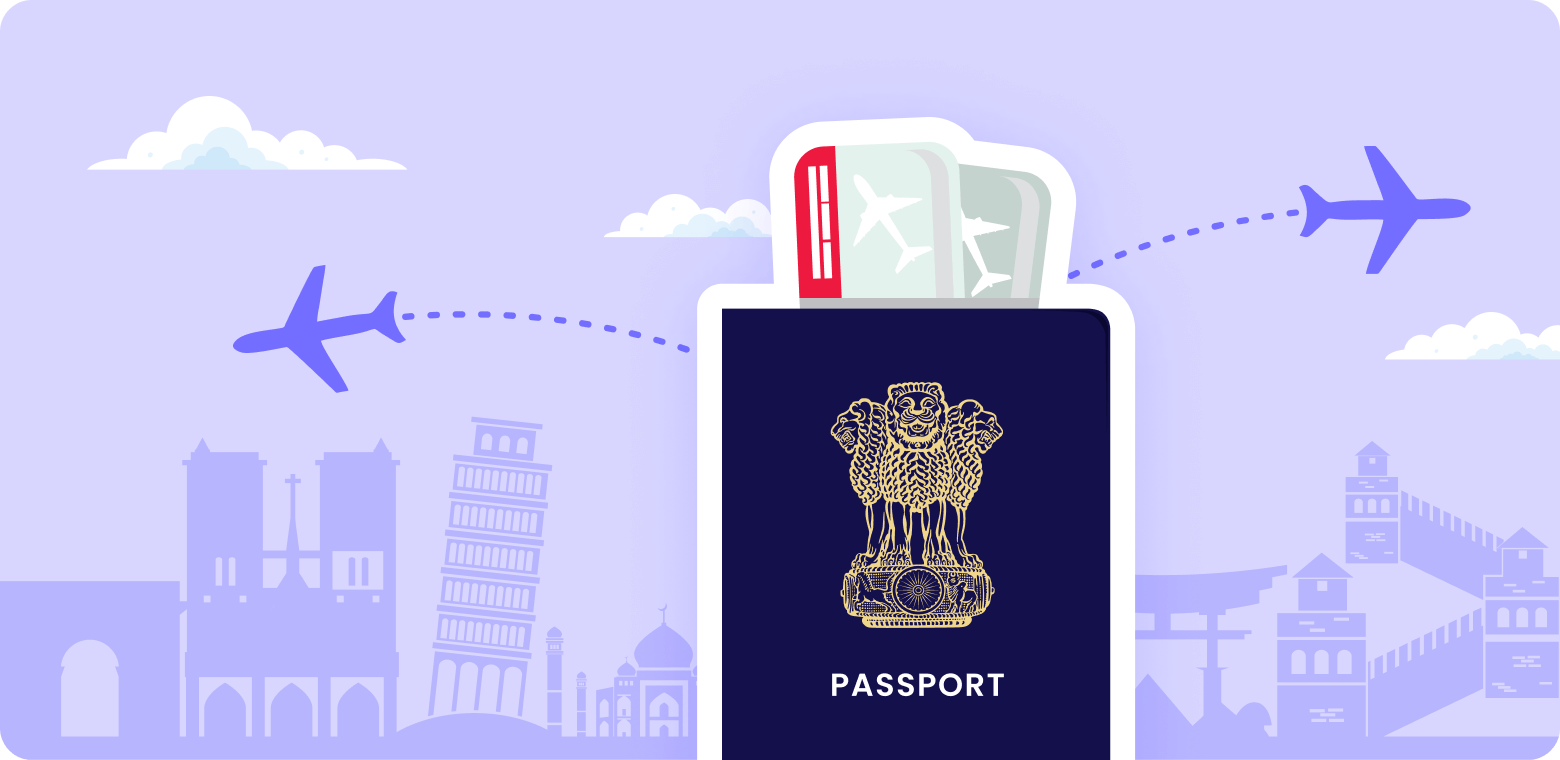
Confused About the Visa Application Process?
Get guided assistance when applying for visa from our expert counsellors.
Types Of Post-Study Work Visas In France
France offers various types of study visas, including Short-Stay Visas for up to 3 months, Temporary Long-Stay Visas for over 6 months, and Long-Stay Visas that are renewable under certain conditions.
France boasts a visa success rate of over 80%, and student visa benefits include part-time work rights, job opportunities, and a 2-year stay-back period after graduation. Explore all three types in detail below.
Here is a snapshot of 3 types of visas and their renewable availability.
| Name | Type | Renewable |
| Visa de court séjour pour études | Short Stay Student Visa | No |
| Visa de long séjour temporaire pour études | Temporary long stay student visa | No |
| Visa de long séjour études | Long stay visa (also called the residence permit VLT-TS | Yes |
Here are the details of all the 3 types. Have a look.
1. Short-Stay Visa (Visa de court séjour pour études)
- This visa is applicable for short courses, training programs, internships, conferences, or engaging in remunerated activities for a maximum of 90 days.
- It is also necessary for simple transit through France, including changing airports or staying temporarily in the country.
- Processing time: 1 to 4 weeks
- Fees: Approx INR 5K (€60)
- It is not renewable
2. Temporary Long-Stay Visa (Visa de long séjour temporaire pour études)
- This visa is for you if you are attending training courses in France lasting three to six months.
- It cannot be renewed.
- Processing time: 1-2 months
- Fees: INR 8K (€99)
3. Long Stay Visa (Visa de long séjour études)
- It is intended for you if you are attending courses in France lasting more than six months.
- A long-stay visa functions as a residence permit in France, allowing you to work while you are enrolled in bachelor’s, master’s, or PhD programs.
- Renewal is possible with specific conditions and terms.
- Processing time: 2-3 months
- Fees: INR 8K (€99)
Also, read Study in France for Indian Students
Special Conditions For Master’s And Phd Students
Here’s something for you if you are pursuing or applying for a master’s degree in France.
The long-stay visa, which includes a residence permit, allows you to work part-time without the need for a separate work permit, a benefit utilised by 80% of Indian students.
These special conditions make France an attractive destination for higher education and career advancement.
Here is the breakdown of details for work visas for master’s degree students.
| Condition | Details |
| While Pursuing a Master’s | |
| Long-stay Visa | It includes a residence permit; no separate work permit is needed. |
| Residence Permit | Allows part-time employment up to 964 hours/year (approx. 20 hours/week). |
| Work Permit Eligibility | Part-time employment with a minimum annual wage of EUR 38,000. |
| Post-completion of Master’s | |
| Temporary Residence Permit | Valid for two years after completing a master’s course. |
| Permanent Residence Opportunity | Eligible for permanent residence or work permit sponsorship upon employment during the temporary period. |
| Return Provision | Graduates can return to France within four years to seek employment or start a business. |
Explore all countries
Types of Post-Study Work Permits
Staying in France after completing a master’s degree not only maximises the value of the education received but also opens doors to substantial career and personal development opportunities.
France offers three main types of post-study work permits: the APS (Autorisation Provisoire de Séjour), the Talent Passport, and the European Blue Card. The APS visa, which allows a 12-month stay extension, is the most favoured among Indian students, with over 70% choosing this option each year.
Here is a snapshot of the types of work permits and features that are provided.
| Type of Permit | Key Features |
| APS (Autorisation Provisoire de Séjour) | Allows temporary stay in France Extendable up to 12 months. |
| Talent Passport | Multi-year residence permit. |
| EU Blue Card | Residence permit for highly skilled workers valid for 1-3 years |
APS (Autorisation Provisoire de Séjour)): This permit allows you to stay in France temporarily to search for a job or start a business. You can extend your stay in France for up to 12 months.
Talent Passport for Foreign Nationals: The Talent Passport is a multi-year residence permit that acts as a work permit. You can get this if involved in salaried professional activities without additional procedures.
To qualify for the Talent Passport, you need to provide:
- A permanent or fixed-term employment contract of at least 12 months with a French employer.
- Proof of completing a minimum of three years of higher education or equivalent professional experience of at least five years.
- A gross annual salary of at least 1.5 times the average yearly gross wage in France, which is €53,836.50 as of May 1, 2023.
If you meet the eligibility criteria, you can change employers or take up a new position without reapplying for a new permit.
EU Blue Card for Highly Skilled Employees: The EU Blue Card is a residence permit for highly skilled workers valid for 1-3 years. To qualify, you must:
- Hold a diploma or degree demonstrating three years of higher education or five years of professional experience in a specific field.
- Have at least one year of work experience.
- Earn a monthly salary of at least 1.5 times the French average gross yearly pay.
If you have resided legally and continuously in France for at least five years or hold a European Blue Card, you are eligible for this work permit. The EU Blue Card allows you to work in France and other EU countries without needing a long-stay visa. It is valid for ten years and is renewable.
Documents Required For Applying for Post-Study Work Visa In France
Gathering the necessary documents for your post-study work visa application in France is a vital step toward securing your future career prospects.
Each year, thousands of international students like you prepare applications with the utmost concentration. The success rate for those who submit complete and accurate documentation is over 95%.
- Valid Passport: A passport is a fundamental requirement, ensuring that you have a recognised form of identification and proof of nationality. It must be valid for at least three months beyond the intended duration of your stay in France.
- Visa Application Form: you need to complete a specific visa application form designated for obtaining a work permit in France.
- Educational Transcripts: You must provide copies of all academic transcripts from the universities or academic institutions you attended. These transcripts validate your academic background and qualifications.
- Birth Certificate: A birth certificate serves as official proof of the applicant’s birth date, place of birth, and parentage. This document is crucial for verifying personal identity and background.
- Health Insurance: Comprehensive health insurance coverage is mandatory for you. This ensures that you have access to medical care and services during your stay in France and covers any unforeseen medical expenses.
- References from Previous Employers: Providing references from previous employers helps demonstrate your professional experience, skills, and suitability for the intended job role in France.
- Passport-Sized Photos: Recent passport-sized photos are required for identification purposes. These photos must meet specific criteria regarding size, format, and clarity.
- Appointment Letter from the Company: An official appointment letter from the prospective employer is necessary. This letter outlines details such as the job title, responsibilities, salary, and terms of employment.
- Letter of Recommendation (LOR): A letter of recommendation from a previous employer or professional contact supports your candidacy for the job in France. It typically highlights your qualifications, skills, and achievements relevant to the position.
- Detailed Work Description: you must provide a detailed explanation of the type of work you intend to engage in while in France. This description helps immigration authorities assess whether the proposed employment aligns with the regulations and requirements for obtaining a post-study work visa in France.
How To Apply For a Post-Study Work Visa In France?
Applying for a post-study work visa in France opens up a world of opportunities for you as an international student.
Each year, thousands of graduates from diverse academic backgrounds choose France, and over 90% of visa applications are approved successfully.
What’s stopping you from doing the same? Of course, it would be the visa application process, but it is not anymore. Keep reading for a detailed application process.
But first, look at the table to find out the application fees and proceeding time.
| Post-study Work Visa in France-types | Application Fee (Approx. INR) | Processing Time |
| APS (Autorisation Provisoire de Séjour) | INR 9K (€99) | 4 to 8 weeks |
| Talent Passport | INR 23K (€269) | 4 to 8 weeks |
| EU Blue Card | INR 23K (€269) | 4 to 8 weeks |

- Step 1: Prepare Your Documents: Prepare all the required documents, such as passports, degrees and certificates, and insurance.
- Step 2: Understand Visa Types: Based on your qualifications and career goals, determine the type of post-study work visa you are eligible for, such as the APS (Autorisation Provisoire de Séjour), Talent Passport, or EU Blue Card.
- Step 3: Book an Appointment: Schedule an appointment at the French consulate or visa application centre in India. You can usually book appointments online through their official website. Pay the visa application fee, which may vary based on the type of visa and current exchange rates.
- Step 4: Attend Your Appointment: Arrive on time for your appointment with all required documents in original and copies.
- Step 5: Submit Biometric Data: If required, provide biometric data, including fingerprints and a photograph, at the visa application centre. This step is part of the security and identification process.
- Step 6: Await Visa Processing: After submitting your application and biometric data, wait for the visa processing to be completed. Processing times can vary, so check with the consulate or application centre for estimated timelines.
- Step 7: Receive Your Visa Decision: Once your visa application is processed, you will receive a decision. If approved, your visa will be stamped into your passport. Make sure to review the visa details for validity dates and any specific conditions.
- Step 8: Plan Your Travel to France: Upon receiving your visa, make travel arrangements to France. Consider factors such as accommodation arrangements, travel insurance, and initial expenses upon arrival.
Please Note: Suppose you have left France within four years of obtaining any higher education diploma. In that case, you will need to validate the “job seeker/new business creator” residence permit upon your return to France. This must be done within two months of issuing the visa.
Job Opportunities After Master’s in France
Can’t wait to join the French job market? You should be this excited, as it offers more work opportunities than you can imagine!
The employment market in France is expected to see a steady increase from 2024 to 2025, with the number of employed individuals projected to rise by approximately 0.1 million people or 0.35 per cent.
This growth will bring the total number of employed people in the country to an estimated 28.4 million by 2025. This positive trend in employment opportunities bodes well for graduates.
Here are some average salaries for top positions in France:
| Position | Average annual salary ( Entry Level) |
| Marketing Executive | INR 34L (€38K) |
| Software Engineer | INR 39L (€43K) |
| Sales Executive | INR 28L (€31K) |
| Data Analyst | INR 36L (€40K) |
| Human Resource Executive | INR 28L (€32L) |
Also read Top 5 Universities in France for International Students in 2024: Rankings & Cost.
Summing It Up
France boasts a remarkable success rate of over 90% for visa applications, highlighting its efficiency and support for you as an Indian student. Whether opting for the APS (Autorisation Provisoire de Séjour), Talent Passport, or EU Blue Card, each visa type provides unique advantages.
You have encountered many benefits from having a post-study work visa in France. It allows you to stay and work in the country for up to 24 months after graduation. Other exciting benefits include Schengen travel restrictions, free VISALE assistance, housing rental subsidies, and easy work permit renewal.
Additionally, you can get high-paying jobs after graduation that start from an average salary of INR 28L (€31K) annually. Not only that, but the application process is much more straightforward, and you can apply easily.
Frequently Asked Questions
-
Q. Who is eligible for a post-study work visa in France?
A. Students are eligible who have:
Completed a degree program (Bachelor’s, Master’s, or PhD) from a recognised French institution are typically eligible.
This visa allows graduates to stay and work in France for a period corresponding to the level of study they have completed. It provides a valuable opportunity to gain professional experience in a global setting. -
Q. How long is the duration of a post-study work visa in France?
A. The duration of the post-study work visa in France varies based on the level of study completed.
Graduates from Master’s programs usually receive a visa valid for up to two years.
While PhD graduates can obtain a visa for up to three years, enabling them to explore career opportunities and contribute to the French workforce. -
Q. Can I travel to other countries in the Schengen Area with a French post-study work visa?
A. Yes, holders of a French post-study work visa can travel freely within the Schengen Area.
It’s valid for up to 90 days, within 180 days, without needing additional visas.
This flexibility enhances the cultural and travel experiences available to graduates while residing and working in France. -
Q. What are the benefits of a post-study work visa in terms of employment opportunities?
A. A post-study work visa allows graduates to work full-time in France. Also:
They are gaining valuable professional experience across diverse industries.
This experience not only enhances their skills and employability but also broadens their global perspective, making them attractive candidates in the competitive job market. -
Q. Is it possible to extend a post-study work visa in France?
A. Yes, graduates can apply to extend their post-study work visa under certain conditions:
Such as securing long-term employment or continuing their education in France.
This extension provides graduates with continued opportunities to pursue their career goals and contribute to the French economy. -
Q. What documents are required to apply for a post-study work visa in France?
A. Required documents include:
A valid passport, proof of completion of studies from a recognised French institution, comprehensive health insurance coverage,
A job offer or proof of job search efforts and
Evidence of financial means to support oneself during the initial stay in France. -
Q. What healthcare benefits do holders of a post-study work visa in France receive?
A. Holders of a post-study work visa in France are eligible to access:
The French healthcare system is renowned for its high quality of care and comprehensive coverage.
This ensures that graduates receive the necessary medical treatment and support during their employment and residency in France. -
Q. How can graduates transition from a post-study work visa to permanent residency in France?
A. Graduates can transition to permanent residency in France:
By meeting specific criteria, such as continuous residence, stable employment, integration into French society, and proficiency in the French language.
This pathway allows graduates to establish long-term roots and contribute to the multicultural fabric of French culture. -
Q. Are there any restrictions on the type of work allowed with a post-study work visa in France?
A. While there are generally no specific restrictions on the type of work allowed with a post-study work visa:
Graduates must ensure that their employment aligns with their qualifications and the terms specified in their visa.
This flexibility enables graduates to explore diverse career opportunities and contribute to various sectors of the French economy. -
Q. What support does France provide for international students seeking employment after graduation?
A. France offers robust career services through universities, job fairs, and networking events designed to connect international graduates with potential employers. These initiatives aim to facilitate job placement, professional development, and integration into the French job market, enhancing graduates’ career prospects.
-
Q. What are the language requirements for obtaining a post-study work visa in France?
A. While proficiency in French is advantageous for integration and certain job roles:
It is optional to obtain a post-study work visa.
However, knowledge of French can significantly enhance job prospects, daily interactions, and overall cultural immersion during their stay in France. -
Q. What are the key advantages of pursuing a post-study work visa in France compared to other countries?
A. France’s post-study work visa offers advantages such as access to the Schengen Area, renowned educational institutions, cultural richness, and opportunities for career development in diverse sectors like technology, arts, and business. This comprehensive experience enhances graduates’ personal growth and professional advancement in a global context.
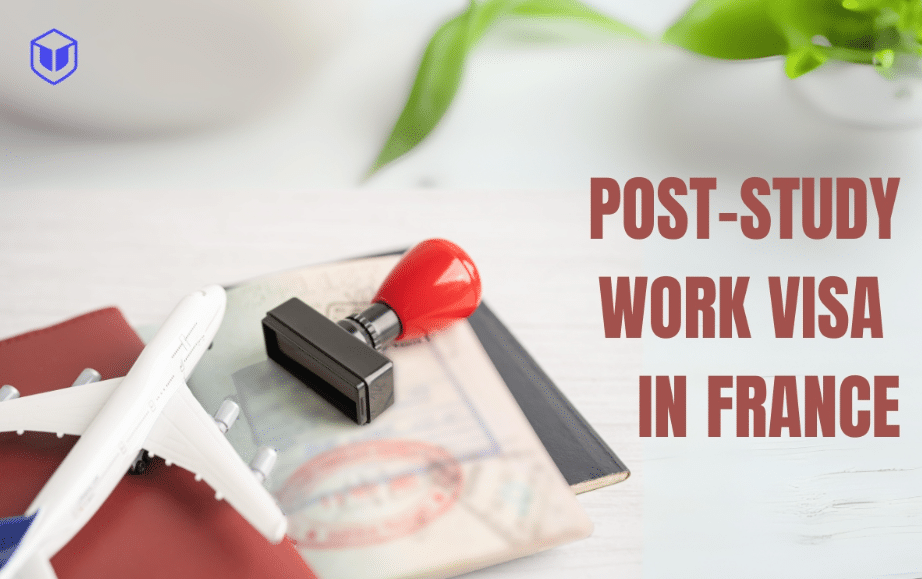




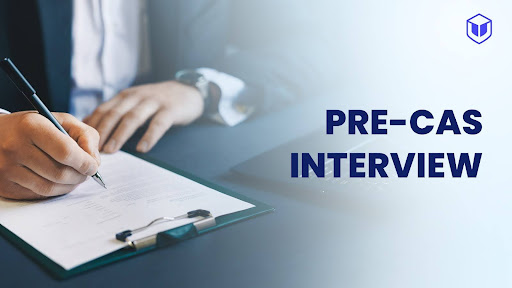
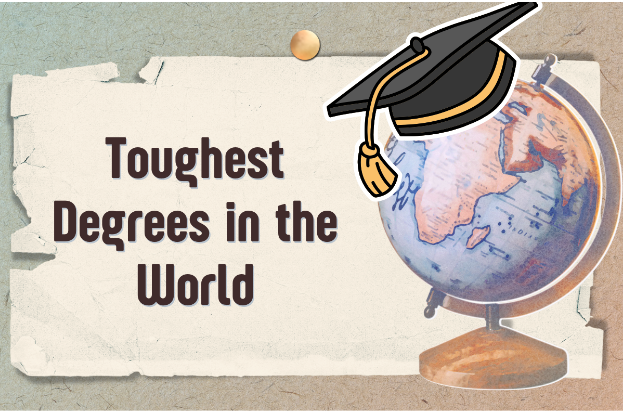







Have Questions? Get Guidance to reach your Dream University
Connect with India's finest counsellors and biggest study abroad community.
Get Guidance